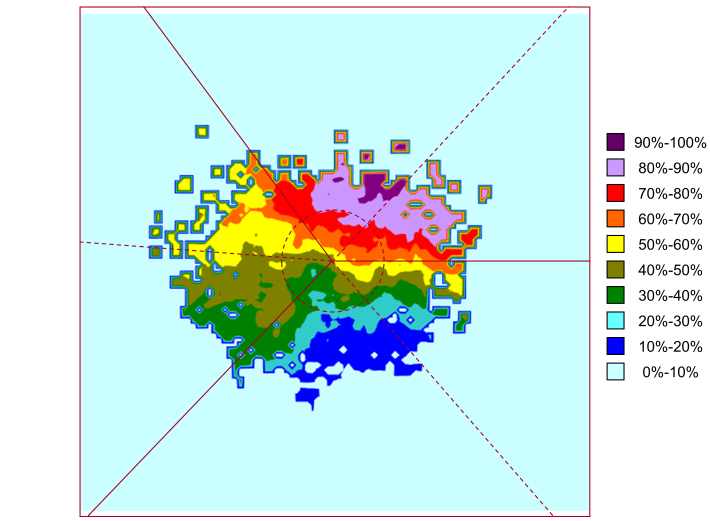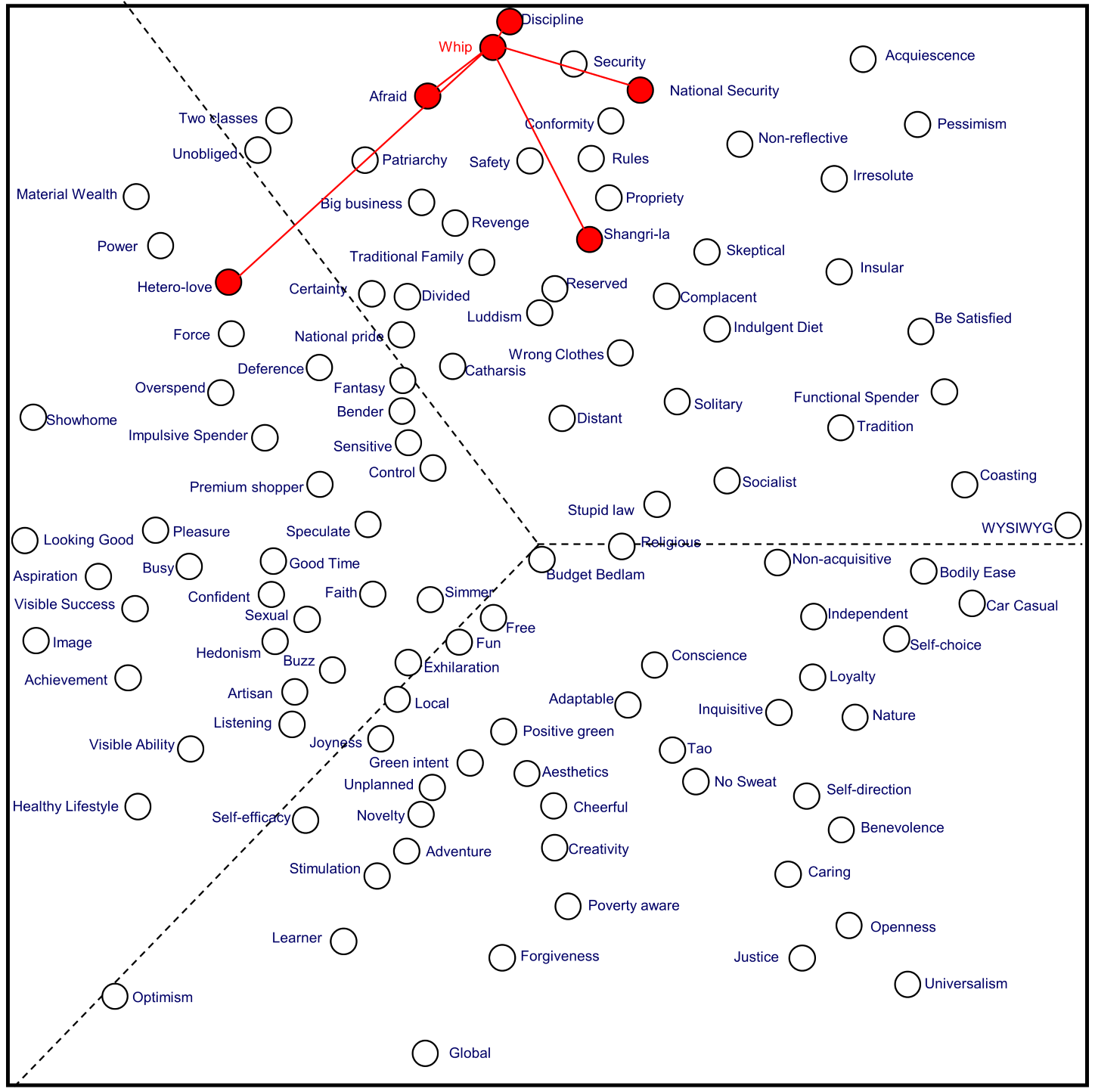

WHIP
 |
I believe that sex crimes, such as rape and attacks on children, deserve more than mere imprisonment. I think that such criminals ought to be publicly whipped, or worse.
The Whip attribute highlights espousers who expect and value institutional structures that protect their loved ones and themselves. They support strong forms of retribution, where severe punishment acts as a strong deterrent which they feel is proportional to the gravity of the crime.
As a result, they tend to believe that the justice system is often too light-handed. Sometimes, the punishment is not tough enough to match with the severity of the crime. In many ways, they believe that society has strayed from a safe and secure path and feel real fear as a result.
They believe that severe crimes, such as rape and attacks on children, deserve more than imprisonment. Losing one's freedom is not enough to match with the violation. Such crimes can lead to shame and humiliation being experienced by the victim of the crime, so they argue that such criminals should also receive punishment that triggers shame and humiliation, e.g. public whipping.
Believing that society's rules need to be clear and followed at all times, they believe that there is really no excuse for breaking them. Rules are there to protect people, property and social order - at both community and national levels. Anything that threatens everyday rules, routines and expectations makes them feel uneasy.
Whip espousers believe that children need to be given regular discipline to keep them safe and to be taught right from wrong. It teaches children important lessons about staying out of trouble and out of harm's way. In turn, this leads to the development of a safer, more stable society.
Feeling their lives are at the mercy of random forces beyond their control, there is a constant background fear of social disorder, anarchy and violent behaviour. Such fear is rarely visible, more a feeling of constant anxiety.
The espousers' discomfort is allayed by seeking solace in the past. They dream of a time gone by, when life appeared to be simpler, easier and safer. If it was only like that today, then they could feel safer and be more adventurous and, perhaps, more romantic.
At the end of the day, there is a very fine line between retribution and revenge. The former is about a visible and proportionate response to negative
behaviour, whilst the latter is about enabling the victim to feel that they have been heard and have some kind of payback. The espousers of the
Whip attribute recognise the urge for revenge.
Using WhipDemographic Skews: 1) Over-indexed: 65+, down-markett. 2) Under-indexed: 18-21, up-market. Whip espousers also espouse other Attributes. The top five most highly correlated Attributes of Whip espousers are, in order of the strength of relationship: 1) Discipline In total those who espouse Whip also over-index significantly on 22 other Attributes. |
|
If "Whip" (or the associated attributes) are important to you and you would like to delve more deeply, contact us at mail@cultdyn.co.uk
